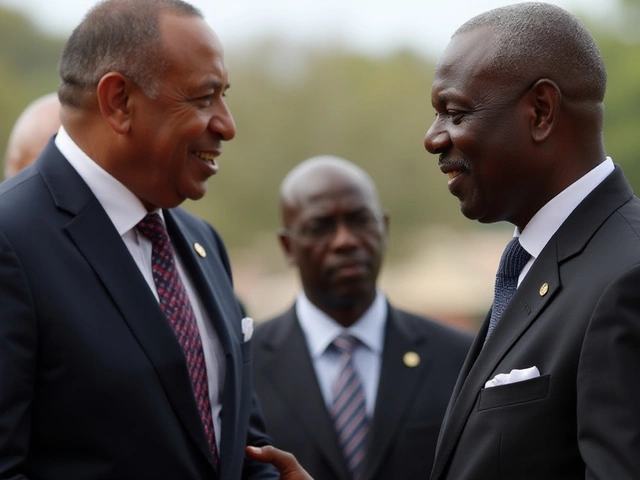Zizi Kodwa Resigns Amid Corruption Allegations
In a significant development within South African politics, Zizi Kodwa, a former Minister of Sports, Arts, and Culture, has officially resigned as a member of the African National Congress (ANC) in Parliament. This decision follows intense scrutiny and pressure from both opposition parties and the ANC’s alliance partner, the Congress of South African Trade Unions (Cosatu). Kodwa’s resignation has become a focal point in discussions about political accountability and corruption within the ANC.
The Charges Against Kodwa
Kodwa was criminally charged for allegedly violating the Prevention and Combating of Corrupt Activities Act. The charges stem from accusations that he received financial benefits amounting to over R1.6 million. These benefits included direct payments and luxury accommodations facilitated by Jehan Mackay, a former executive at EOH, a technology company. According to the allegations, these payments were made in exchange for Kodwa’s interventions in government procurement processes to favor EOH and its subsidiary, TSS Managed Services.
Pressure from Cosatu and Opposition
The pressure on Kodwa to step down has been mounting for months. Cosatu had called for Kodwa to step aside following the charges. The trade union federation expressed concern over the implications of the allegations and questioned the ANC’s decision to retain Kodwa in Parliament after the May 29 elections. The criticism from Cosatu was echoed by various opposition parties, which also questioned the integrity of allowing a member facing severe allegations to continue serving.
The Role of the Zondo Commission
The charges against Kodwa are part of a broader investigation into state capture led by retired Chief Justice Raymond Zondo. The Zondo Commission has been pivotal in uncovering extensive corruption within the South African government. Recommendations from one of Zondo’s reports led to the charges against Kodwa, highlighting the systemic nature of corruption and the challenges facing efforts to hold public officials accountable. The findings of the Zondo Commission have had far-reaching impacts, prompting a national conversation about integrity and transparency in public office.
Political Ramifications
Kodwa’s resignation has significant political ramifications. It serves as a test of the ANC’s commitment to rooting out corruption within its ranks. Cosatu’s welcoming of Kodwa’s resignation perhaps provides a moment of alignment between the ANC and its alliance partners. But the broader question remains about whether this incident will lead to lasting reforms within the party to prevent similar situations in the future.
Another dimension to this issue is the public perception of the ANC's willingness to tackle corruption. For many voters, Kodwa's case will be a litmus test of the party's resolve. ActionSA, a significant opposition party, has used Kodwa’s resignation to argue for the implementation of stricter rules and regulations to prevent individuals with tainted reputations from standing for public office. They believe that this step is crucial to restoring public trust in the political system.
Moving Forward
The ANC is at a crossroads. The party's response to the allegations against Kodwa and how it handles similar future incidents will be critical in shaping its legacy and future electoral prospects. Will they implement more stringent vetting processes for their candidates? Will there be a renewed focus on transparency and accountability within the party?
For Kodwa, his resignation marks the beginning of a legal battle that will determine his future in politics. The outcome of his case will be closely watched not only by his supporters and detractors but also by the international community as an indicator of South Africa’s progress in combating corruption.
In closing, the resignation of Zizi Kodwa is more than just a political scandal. It is a reflection of the ongoing struggle within South Africa to establish a government that is truly accountable to its people. As more details of the case emerge and the legal proceedings unfold, it will be crucial to monitor the actions of the ANC and other political entities to see if this moment serves as a catalyst for genuine reform and change.






